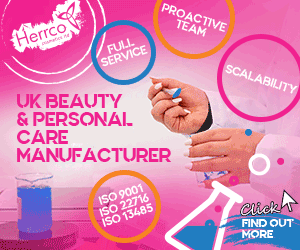Hairstyling products are poised to replace the ‘lipstick effect’ as a key indicator of affordable luxury shopping habits.
Research from British beauty brand owner THG found that orders of hair styling products and electrical hair tools on Lookfantastic grew by 70% and 17% respectively during 2022.
Searches for lipstick, lip balm and lip gloss plummeted during the year, with consumer interest in lipstick dropping by 20% compared with 2021.
The ‘skinification' of hair care has also contributed towards the increase in hairstyling sales.
Lucy Gorman, CEO of THG Beauty, said consumers are prioritising skin, hair and scalp health more as part of holistic wellness regimes.
This was also seen during the Covid-19 pandemic with the ‘skinimalism’ trend, leading to the rise of the ‘serum effect’ and consumers ditching complex multi-step skin care routines.
“The ‘lipstick effect’ has long been established, but whether it still rings true today remains to be seen,” added Gorman.
“Our data suggest that hair care and hairstyling may take on the mantle as the UK’s affordable recession treat.”
It comes as the UK could be preparing to enter a recession, with a 0.3% decline in the country’s economy in October 2022 providing a strong indication of the economic downturn.
At the same time, the UK’s premium beauty and personal care market value increased to over £100bn in 2022, according to Euromonitor International.
“While the recession will undoubtedly tighten spending, it’s clear that UK consumers’ desire to look and feel good has not waned – and if the last recession is anything to go by, the beauty, hair care and personal grooming sectors may prove to be some of the biggest recession busters,” added Gorman.
The current cost of living crisis is continuing to place pressure on the beauty sector.
One in five people in the UK are worried about being able to afford skin care products, discovered a survey by skin care brand UpCircle in partnership with YouGov.
Meanwhile, a quarter of women globally have given up their favourite fragrance due to financial challenges, found data by Avon.
“Traditionally, beauty booms during economic uncertainty, but today’s crisis feels different,” said Sarah Coonan, Managing Director of Retail at London-based luxury department store Liberty, told Cosmetics Business in November 2022.
“Retailers will have to fight hard to offer added value and exceptional products to ensure consumers still see luxury beauty as a necessity.”





